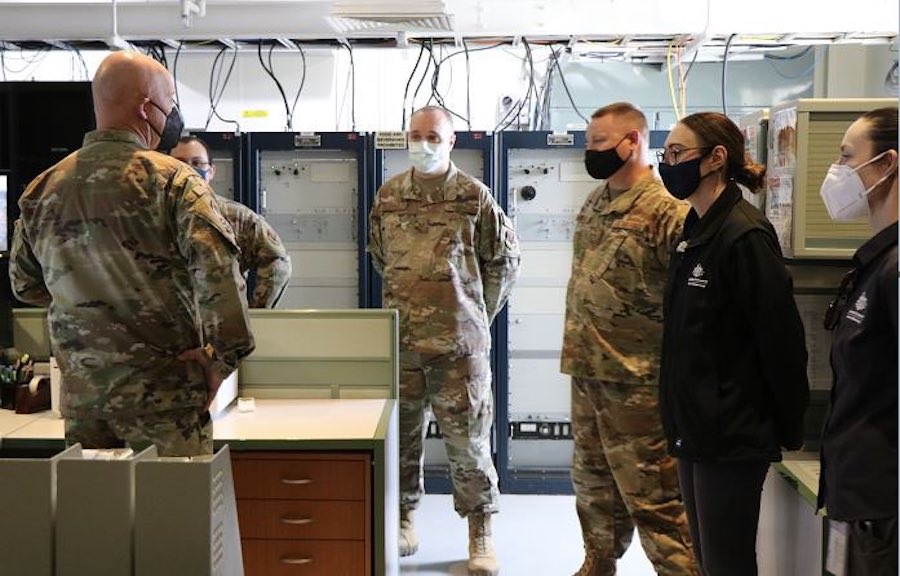Raymond: ‘We are going to focus on how to mature our partnerships’
COLORADO SPRINGS – The United States this week will host the third gathering of international military space chiefs in Colorado Springs.
“We are going to focus on how to mature our partnerships,” Chief of Space Operations of the U.S. Space Force Gen. John “Jay” Raymond told SpaceNews in an interview at the 37th Space Symposium.
At the international chiefs forum will be military space leaders from Australia, Canada, Denmark, France, Germany, Italy, Japan, Netherlands, New Zealand, Norway, Poland, Republic of Korea, Sweden, United Kingdom and United States.
Raymond recently visited Australia’s newly established space command and toured space surveillance sites where U.S. and Australian forces operate side by side. He said one of the issues raised by Australia and other allies is the need to evolve current alliances “beyond just data sharing partnerships, but make them truly operational.”
“We want to actually get to the point where we’re developing capabilities together,” said Raymond. “And so we’re going to continue to have those conversations with our closest partners.”
The backdrop of the meeting are growing concerns about space security and sustainability, including the possibility that Russia could repeat the destructive anti-satellite missile test it carried out in November that created a huge cloud of orbital debris.
“A lot of what we’re doing with our partners is figuring out what are responsible norms of behavior,” said Raymond. Proposals have been written on what those norms should be but ultimately “we demonstrate safe and responsible behavior by how we operate,” he said.
“We need to have a better understanding of the space domain and that’s why the partnerships in Australia and other places are really important,” he said. “But there’s a lot of figuring out still to do.”
International talks on space security will soon get underway by a United Nations-led working group. U.S. officials said it’s unlikely that Russia or China will participate in these talks but Raymond believes that “like-minded nations” can move forward with efforts to promote space security, “continue to demonstrate good behavior, and hopefully, others will follow.”
Future U.S. space architecture could include allies
Raymond said a high priority for the U.S. Space Force is to transition its legacy constellations of “exquisite” satellites to a more diversified architecture that would be harder for adversaries to disrupt.
“And that’s going to require doing things differently,” he said. “We can’t continue to acquire like we always have, where you have a handful of big exquisite satellites.”
A future architecture for space-based communications, for example, should have a mix of exquisite and lower cost mass-produced satellites, and might include allied satellites, he said. “I think where you’ll see us land is with a kind of a hybrid architecture that has a mixture.”
“If you go to a more proliferated architecture, rather than the handful of exquisite capabilities, you then open the opportunities for more commercial collaboration and you open opportunities for more collaboration with our allies and partners,” Raymond said.
